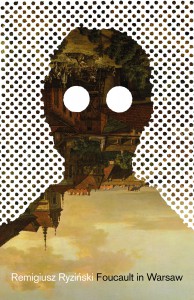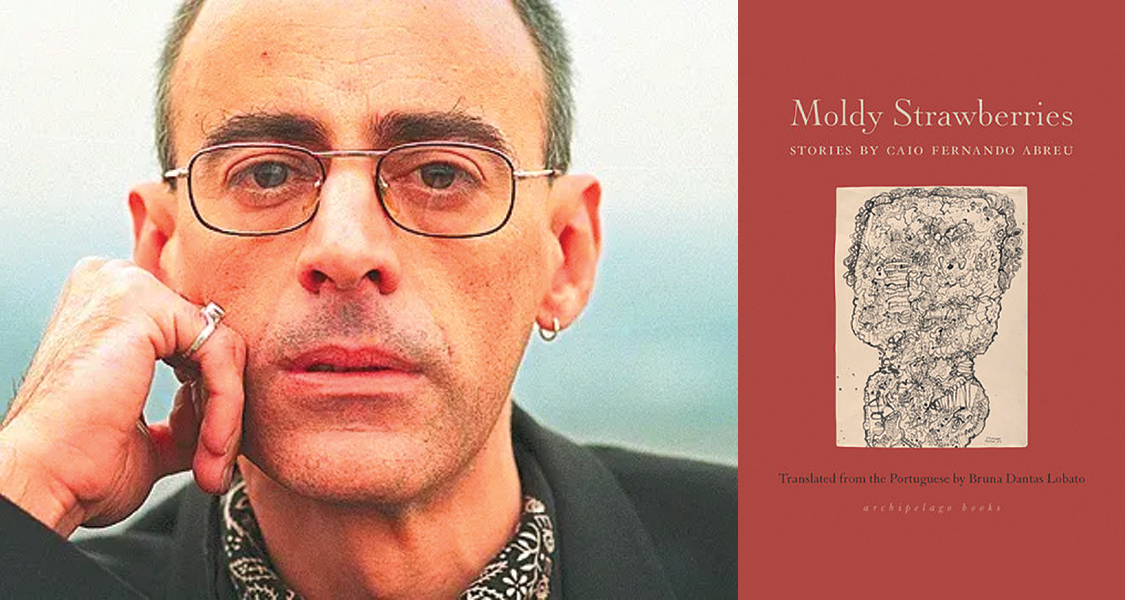This month, our selections of excellent works from around the world are manifold with mystery: some historical, some psychological, and some linguistic. From Poland, philosopher Remigiusz Ryziński attempts to figure out the sexual politics behind Michel Foucault’s hasty departure from Warsaw. The newest autobiographical novel from Linda Boström Knausgård contends with the author’s own experiences with electroshock therapy, and its impact on her memories. Lastly, in an essay collection by Mariana Oliver explores the act of moving between the various territories of cities and languages, between familiarity and curiosity. Read on to find out more!

Foucault in Warsaw by Remigiusz Ryziński, translated from the Polish by Sean Gasper Bye, Open Letter, 2021
Review by Julia Sherwood, Editor-at-Large for Slovakia
“Michel Foucault came to Poland in October 1958. He took a position as the first director of the newly founded Center for French Culture at the University of Warsaw. It was in Warsaw that he finished his doctoral thesis, later published as History of Madness. Yet in mid-1959, he was forced to leave Poland. The reason was a certain boy, Jurek. No one ever figured out who this boy really was.” With the mystery laid out, Remigiusz Ryziński opens his exploration of this little-known episode in the life of the philosopher as a young man, and his attempt to find out what led to Foucault’s expulsion from Warsaw.
Foucault in Warsaw is the first non-academic book by Remigiusz Ryziński—a Polish philosopher and cultural critic who studied at the Sorbonne—and another addition to Sean Gasper Bye’s impressive portfolio of translations. Combining the techniques of literary reportage with the analytical tools of Foucault’s archaeology of knowledge, Ryziński has unearthed secret police dossiers and trawled through hundreds of pages of reports filed by undercover cops and snitches: “Stories typed or handwritten, full of dates and places, names and connections, meetings, relationships, breakups, love, and suffering. Reading them felt like flipping through someone’s family photo album.” He immersed himself in the press and newsreels from the period, incorporating details, such as the price of everyday goods and statistical information, to conjure up the flavours, textures, and colours of Warsaw—the city that is as much a hero of this book as the philosopher himself, along with “the boys whose company Foucault enjoyed most.”
For those familiar with recent works of Polish literature, Ryziński’s reconstruction of the life of the gay community in Warsaw in the late 1950s will bring to mind Lubiewo, Michał Witkowski’s groundbreaking 2004 novel depicting gay life on Poland’s Baltic coast, before and after the end of communism. While Witkowski’s book presents fictionalised versions of real stories and characters, Ryziński has tracked down the actual people who knew Foucault during his time in Warsaw (including some who were romantically linked to him) or were active on the gay scene at the time. He retraced the places Foucault did—or was likely to—frequent, recreating a detailed topography of Warsaw’s cruising spots: an assortment of cafés and bars from the seedy to the sophisticated, steam baths both ornate and functional, public squares and monuments ideally suited for pulling soldiers, and public toilets such as the French-style urinals known as “mushrooms,” to the bathrooms at the Palace of Culture, considered “the height of luxury.” READ MORE…






